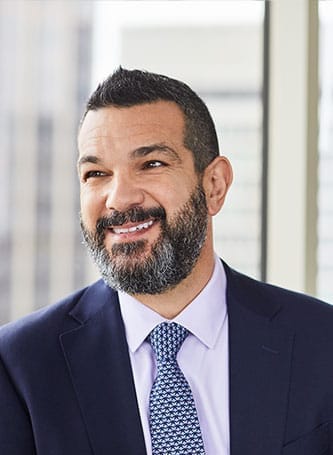In a recent Minnesota case, the Eighth Circuit Court of Appeals held that where a bank accepted and paid two checks despite missing endorsements, the jilted payee had no viable claim because it ultimately suffered no loss.
Northeast Bank v. The Hanover Ins. Group, 796 F.3d 929 (8th Cir. 2015) involved: (i) the purchaser of a financially struggling hotel and water park, Grand Rios Investments, LLC (“Grand Rios”); (ii) Grand Rios’s creditor, Northeast Bank (“Northeast”); (iii) Grand Rios’s insurer, Hanover Insurance Group (“Hanover”); and (iv) Alex N. Sill Company (“Sill”), the firm hired by Grand Rios to negotiate claims submitted to Hanover arising from winter snow damage. See Northeast, 796 F.3d at 930.
When the hotel and water park was constructed in Brooklyn Park, Minnesota, Northeast loaned $18 million to its original owner. Id. at 930. Grand Rios purchased the struggling property in 2010, assuming $4.61 million of the existing debt and securing that debt with: (i) personal guarantees from its principals; (ii) a mortgage; and (iii) an obligation to maintainsurance for Northeast’s benefit, which insurance was purchased from Hanover. Id.
After the roof of the hotel and water park were damaged by a snowstorm later in 2010, Sill negotiated Grand Rios’s claims against Hanover. Id. In February 2011, Hanover issued a check for $100,0000 payable to all of Sill “and” Grand Rios “and” Northeast. Id. Hanover issued a second check payable jointly to all three entities in the amount of $250,000. Both checks were presented to Defendant Wells Fargo Bank, N.A. (“Wells Fargo”) without any endorsement by Northeast. Id. Wells Fargo accepted both checks and deposited the proceeds in the account of Grand Rios, despite the missing endorsements. Id.
In April 2011, Northeast was threatening Grand Rios with foreclosure due to a repeated failure to make mortgage payments. Id. Grand Rios and Northeast entered a settlement agreement involving a voluntary foreclosure, a payment of $50,000, assignment of additional insurance proceeds to Northeast, and appointment of a receiver for the subject property. Id. Ultimately, pursuant to the terms of the settlement and additional insurance payments from Hanover, Northeast recovered approximately $200,000 more than the debt owed to it by Grand Rios as of the foreclosure date.
Northeast sued Wells Fargo, seeking to recover an additional $350,000 on theory that Wells Fargo had converted the checks with missing endorsements and that Northeast was entitled to recover their face value. Id.
Pursuant to Section 3-420 of the Uniform Commercial Code (the “UCC”) as adopted in both Minnesota and Massachusetts, “the measure of liability [for conversion] is presumed to be the amount payable on the instrument, but recovery may not exceed the amount of the plaintiff’s interest in the instrument.” See id. at 931. See also G.L. c. 106, § 3-420(b). Wells Fargo took the position that because Northeast had no actual damages, it could not recover for conversion. Id. Northeast argued that the presumption set forth in UCC Section 3-420 could not be rebutted without evidence that Grand Rios paid $350,000 toward its debt to Northeast. Id.
The Eighth Circuit held that the settlement Northeast received from Grand Rios, a joint tortfeasor in the conversion action, must be credited against any liability by Wells Fargo. See id. at 932. Thus, Wells Fargo “successfully rebutted the [Section 3-420] presumption as to the measure of liability in this conversion” and any other result would provide Northeast with an improper double recovery. Accordingly, the Eighth Circuit reversed the trial court’s entry of summary judgment for Northeast and remanded for entry of judgment in favor of Wells Fargo.
The case stands for the sensible proposition that a plaintiff is not entitled to payment of the face value of a converted instrument where it has not suffered any actual loss – notwithstanding the Section 3-420 presumption and especially where the plaintiff has been made whole by a joint tortfeasor also liable for the conversion.
